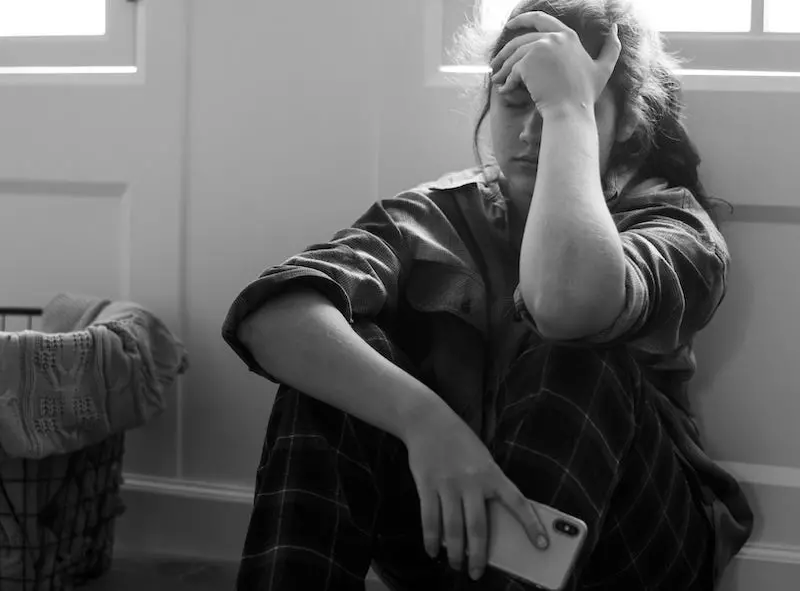Signs of Depression in Teens to Watch Out

Teens are quite susceptible to depression. This is a problem that affects the lives of teenage boys and girls, and it can have serious consequences. This is why parents should take the time to understand the symptoms of depression and how to intervene.
How Common is Depression in Teens?
Teenage depression is a problem that’s becoming increasingly common in the United States. In addition, research shows that depression is more common in girls. The data indicate that girls are about three times more likely to end up depressed than teen boys.
According to the National Survey on Drug Use and Health, 13% of teenagers in the United States between the ages of 12 and 17 experienced at least one episode of depression in 2017. This is an increase of 8% from 2007.
While girls are more likely to experience depression than boys, they are also more likely to open up and receive treatment through therapy or medication. Almost 45% of all girls who experience depression receive treatment. On the other hand, boys are less likely to open up about such issues, with only 13% receiving treatment.
What Causes Depression in Teens?
Depression is a problem that has no known cause. However, there are several issues that may lead to teenage depression.
Changes in Brain Chemistry
Changes in brain chemistry have been identified as a cause of depression. For example, abnormal or impaired brain neurotransmitters can affect brain function. This, in turn, affects the nervous system’s overall function, leading to depression.
Hormonal Changes
This is another known cause of depression. Changes in your teen’s hormonal balance can cause or trigger depression. This can be an inherited trait as well. That means if you suffered from depression as a teenager or adult, you must keep a closer eye on your child.
Early Childhood Trauma
Several traumatic events can cause depression in teens. This includes things like physical and emotional abuse. Another common cause of depression in teens is the loss of a parent. These events can cause brain changes that increase the risk of depression.

Other factors that increase the risk of depression in teens include:
Obesity.
Witnessing physical violence.
Having health conditions like bipolar and anxiety disorders.
Having a learning disability, among others.
What are the Signs of Depression in Teens?
The signs of teen depression go beyond being moody. This problem can destroy your child’s personality and cause an overwhelming sense of despair, sadness, and anger. Depression in teens is often seen as an act of rebellion. Most parents think it’s just acting out, when, in fact, it can be an attempt to cope with emotional pain.
Persistent Negative Mood
If your child is always crying, you should suspect they may be depressed. However, teenagers with depression don’t appear sad. Instead, in most instances, they are irritable, angry, and agitated.
Issues at School
Depression can affect your child’s energy levels and concentration. This will lead to poor attendance, bad grades, frustration with school work, and sometimes, fights at school.
Loss of Interest in Activities
When you notice that a child who used to be so enthusiastic about playing with others suddenly wants to keep to themselves, you should suspect depression. This lack of interest also extends to hobbies. They may quit sports and withdraw from friends and everyone at home.
Run Away
Running away is a common symptom of depression in teens. Lots of teens run away from home each year because of depression. This is just a cry for help.
Drug Abuse
A child may turn to drugs and alcohol in an attempt to escape from reality. Unfortunately, this kind of behavior usually makes things worse.
Are Signs of Depression Different in Teen Boys and Girls
Did you know that depression presents differently in boys and girls?
Signs of depression in teen boys
Depressed boys usually display symptoms like irritability, suicidal thoughts, and the desire to reduce their pleasure.

Signs of depression in teen girls
On the other hand, depressed teen girls feel a sense of guilt, worthlessness, fatigue, punishment, and low energy.
How to Distinguish Depression in Teens From Normal Behaviour
Not every negative behavior displayed by teens is a sign of depression. Sometimes it will just be teens being teens. For example, sometimes teens display decreased interest in socializing with their family members. If this is happening, but they are still hanging out with their friends, it’s probably just a phase.
Another sign you can confuse with depression is sleeping late on weekends, which results in the teen being tired on a school morning. This is normal. You should only be worried if the child is sleeping all the time and refusing to get out of bed.
There are lots of other things that you can confuse with depression signs in teens. Teenagers usually have shifts in mood, and sometimes their performance in school can decrease. Your approach to assessing depression should be focused on a combination of signs rather than one thing.
Summing Up
Parents need to be aware of the signs of depression in teens. This is because depression can have some serious consequences. For instance, depression can cause your child to run away. It can also cause them to start having suicidal thoughts. As such, you should be able to spot the signs of depression so you can intervene before something bad happens.
If your teen shows signs of depression, you should actively listen to them when they talk to you. Repeat what they say in summary so they are sure you hear them. You should also avoid too much conflict with your child. If something is not too bad, let it slide.
If you are unsure that you can deal with depression alone, you can find a therapist to help you out. Therapists are specially trained to connect with teenagers and help them overcome depression.